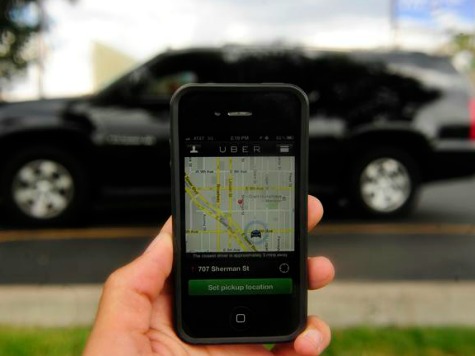In just five years, the Uber ridesharing service has managed to become a dominant international brand with operations in 45 countries. Part of the company’s disruptive worldwide strategy has been to spend its venture capital on giving away free service. But after burning through the $1.2 billion VC cash it raised at an eye-popping $17 billion valuation since June, Uber needs another $1 billion for giveaways in India.
The sharing society has been around for hundreds of years. But as government regulations created monopolies for politically savvy crony capitalists, costs rose and reliability crashed. Uber’s disruptive attack on regulated taxi services empowered individuals to use their personal vehicles to eviscerate local cab companies. But Uber’s success encouraged entrepreneurs with lower overhead to become Uber competitors.
Uber entered the Indian market a year ago August, and its smooth mobile app and cashless payment offerings were a hit with customers. But due to fraud, Uber was forced to switch to a payment “wallet” this month after the Reserve Bank of India (RBI) insisted on a two-step authentication process for all card transactions. Wallets are digital dockets that are filled with money using debit or credit cards or net banking; customers then use them to pay for products online.
Once the Uber app lost its convenience advantage in the second largest national market, the company decided to try predatorily bankrupting its competition by giving away free rides to anyone in India’s 11 largest cities between Wednesdays and Sundays.
The only restriction for Uber charity is that each gratis customer must link his or her account to Uber’s wallet payment system to receive five free rides with a value of up 300 Indian Rupees, or $4.90 USD. With about 200 million of India’s population of 1.2 billion concentrated in Uber’s 11 target cities, the promotion could potentially end up giving away $4.9 billion.
Undoubtedly, Uber’s aggressive price war strategy will cause its volume of trips in India to skyrocket. But with no revenue, Uber is not going to make up any losses on volume. More importantly, Uber India’s main competition operates with fleets of three-wheel rickshaws.
Indian news website Live Mint suggested that Uber competitors Ola and TaxiForSure are all willing to suffer 50% losses on popular trips to popular locations like train stations to build brand awareness among consumers.
Uber India is also distributing additional cash giveaways on top of subsidies per trip, including rewards paid to its drivers for completing a certain number of trips per day and continuing to keep the Uber India app open all day.
But the real challenge for Uber in India is that local competitor TaxiForSure only charges drivers a commission of 13-14% per referral fare versus Uber’s commission charge of 20%. With a big comparative disadvantage in cost, Uber had better be raising lots of venture capital money to continue to give away subsidies.
Chriss Street suggests that if you are interested in high-tech, please click on “Tech Start-Up Fundings Crash 40% Since April“

COMMENTS
Please let us know if you're having issues with commenting.